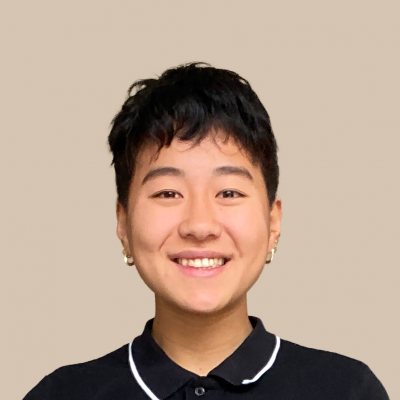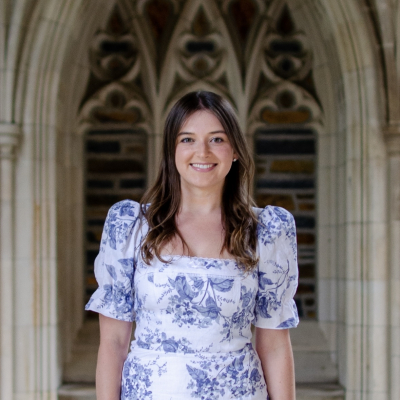Trinity Communications
The Department of Statistical Science is delighted to announce that two Duke students were among winners from the Spring 2023 Undergraduate Statistics Project Competition.
Ro Huang placed in the top three for their class project, “Bring The Heat: Exploring The Relationship Between Temperature And Short & Long-Distance Running Performance,” and Naomi Rubin placed in the top three for her research project, “Evaluating Student Perception Of Assessment In Introductory Quantitative Studies.”

Both papers grew out of close working relationships with mentors from the Department of Statistical Science and other experiences at Duke.
Training to run a marathon sparked Huang’s academic inquiry.
“I was curious about how weather would affect running performance, considering how miserable my runs were when it was cold, raining, or hot,” they said. “It was really exciting to be able to apply the skills I’ve developed across my statistics classes (especially STAT199 and STAT210) to a question that had tangible implications.”
Using a novel metric, Huang found that hotter temperatures have significantly more impact on marathon distance runners than 5K racers. This analysis could improve distance-specific athletic training plans.
Huang worked closely with Yue Jiang, assistant professor of the practice of Statistical Science. “He supported me in modifying and refining the draft to be more suitable to the competition,” Huang remembered.
Rubin developed a research interest in STEM education from her two Duke programs.
“My thesis was a long-term project initially inspired by my experience on the Girls Exploring Math Bass Connections team during my sophomore year,” she said. “I then worked as a project manager with my Bass Connections professors in their Faculty Learning Community about inclusive assessment during my junior year.”
Rubin’s research project investigated whether students’ perception of a learning assessment’s credibility affects academic achievements. Her findings could help inform strategies for how STEM is taught and graded at the university level.

“Duke professors are always doing interesting things,” Rubin added. “If you don’t know what you want to research, look into the work your professors are doing.”
Rubin’s research project was guided by faculty members Mine Çetinkaya-Rundel and Maria Tackett and postdoc Elijah Meyer.
Along with their advisors’ support, there was an exceptional striving that set Rubin and Huang up for success.
“I ended up using a model that I was unfamiliar with from my statistics classes, I wrote my thesis in Quarto which I had never used before and ended up loving it,” Rubin said.
“To accomplish this study, I had to learn some hard and soft skills on my own,” Rubin said. “If you have work you have already done that you can shape to fit the requirements of a competition, I highly recommend it, because you never know what the outcome may be.”